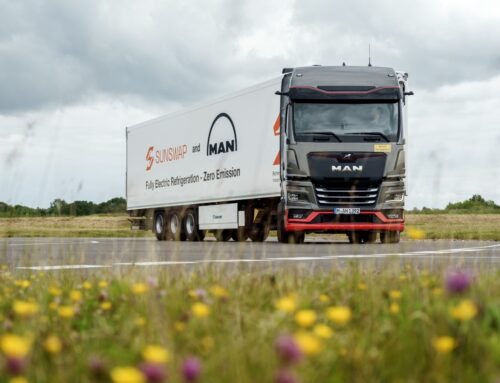DVSA launches Market Surveillance Unit report
The Driver & Vehicle Standards Agency (DVSA) has announced the publication of its first Market Surveillance Unit (MSU) report on vehicle and component testing.
The MSU’s testing scheme is designed to ensure that vehicles, trailers, parts, and equipment on the market are safe to buy and use, and that they meet relevant environmental standards.
On discovery of evidence of unsafe or illegal vehicles, products or parts, DVSA can offer advice and guidance, or issue warnings, recall notices or fines. It can also report businesses or individuals to be considered for prosecution.
Vehicle and component testing by the MSU covers a number of areas, including tyre labelling and part-worn tyres.
As part of its work, the MSU checks the supply of new truck, van and car tyres in the UK to ensure suppliers are fulfilling tyre labelling obligations, and that manufacturers are assigning appropriate performance values to their tyres.
Of 48 tyre suppliers across Great Britain visited by the DVSA in 2023, 24 (half) did not provide the tyre label information as required. The picture in Northern Ireland appeared to be somewhat better, with only 15 of 55 premises visited failing to fulfil obligations around the provision of tyre label information.
“We contacted 37 suppliers to advise and remind them of their obligations,” said DVSA.
“We issued two with a civil penalty compliance notice to bring their practices into conformity with the regulations.”
Of the 20 different tyres tested for wet grip performance, nine tyres performed at a lower rating than rated on the tyre label, added the agency.
Of 20 tyres tested for fuel efficiency performance, one performed at a lower rating than rated on the tyre label, but four performed better than rated.
Of the 20 tyres tested for noise levels, meanwhile, four were found to be louder than the value declared by the manufacturer – while one performed better than rated.
“None of the tyres failed to meet all three declared values on the label, but three tyres failed to meet two of the values specified on the tyre labels,” said DVSA.
“We will follow up these results with the tyre manufacturers to ensure that the tyre labelling is accurate.
“We’ll continue this work into 2024. We will test different sizes and brands of tyres against the tyre label parameters to check for their accuracy.”
The report looks at a variety of other areas across a range of vehicle types, including brake pads, advanced driver assistance systems (ADAS), exhausts and silencers including modification systems, and certificates of conformity.
The full 2023 MSU report can be found here.
Chris Dormand, head of DVSA’s market surveillance unit, said: “Providers of unapproved vehicles or parts are putting the lives of users at risk by sidestepping the legal processes.
“Consumers and businesses should not assume that every vehicle or part available to buy or use is safe and legal.
“The MSU is committed to investigating instances of non-compliant companies and items and will investigate. DVSA will consider prosecution where they do not meet the required standard or type approval and remove dangerous items from sale.”
The MSU also implements emissions testing to ensure manufacturers are conforming with environmental requirements, specifically the Euro VI/6 emissions standards.
A separate report covering the unit’s emissions testing programme can be found here.
“DVSA aims to check a representative selection of the most popular vehicle types used on UK roads,” explained the agency.
“The vehicles [tested in 2023] were chosen based on their UK sales, with other vehicles added in to make sure a wide range of manufacturers were included.
“DVSA sourced vehicles from hire fleets or bus operators. The vehicles were not provided by manufacturers and they could not prepare or modify the vehicles before they were tested.”
This year within the HGV and PSV sectors, an Iveco Daily N2 rigid, a Mercedes-Benz Sprinter N2 rigid and a Ford Transit M2 minibus were tested.
In all three cases, the vehicles were found to be “compliant with all required tailpipe pollutant emission limits under the applicable legislative test (On Road Conformity Test)”.
The agency added: “When the DVSA tested [each of the three vehicles] to the EU ISC protocol as part of the on road conformity test, they found compliance for THC, CO and NOx emissions. All monitored emissions fell well below the test limits.”











